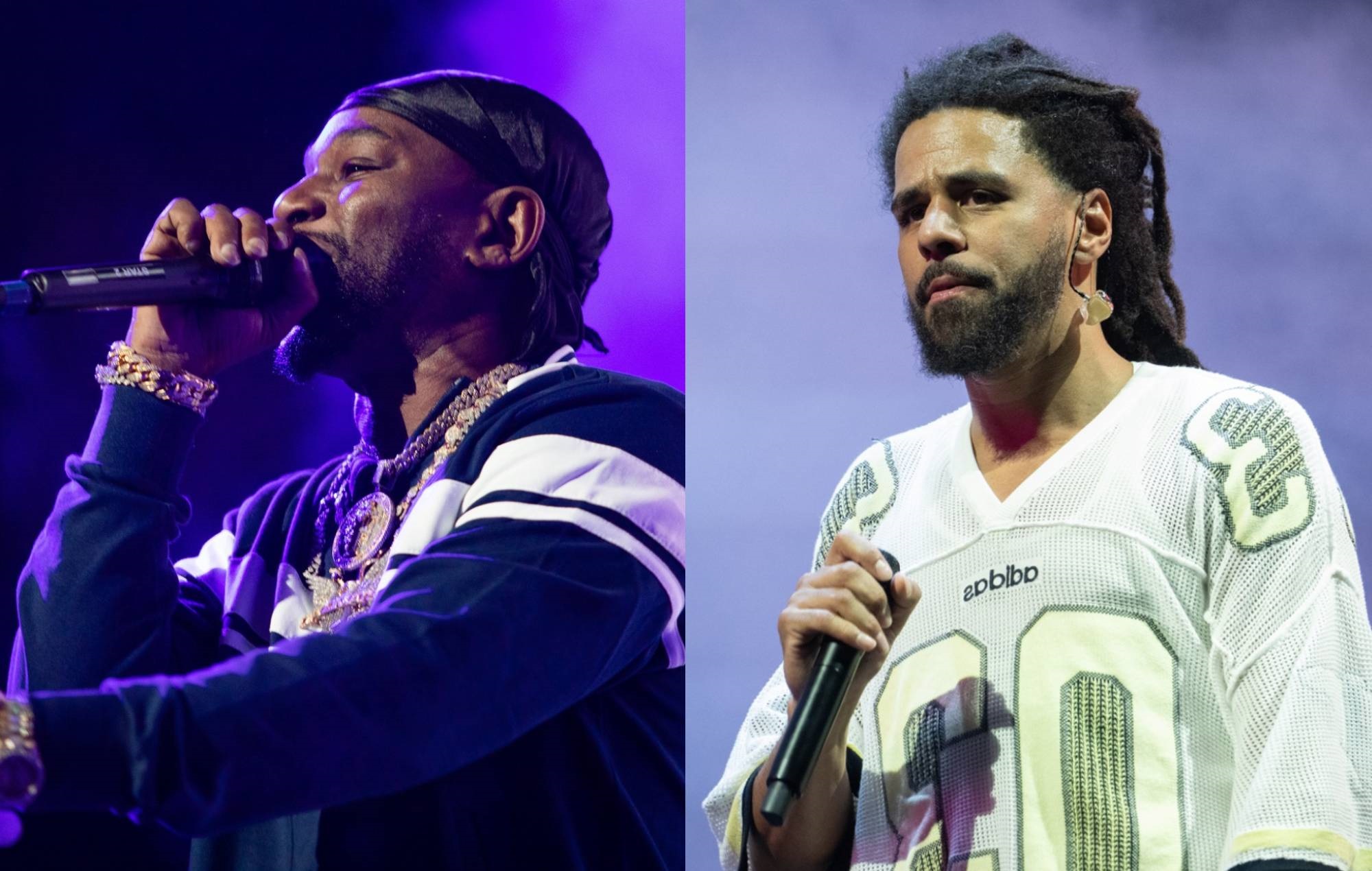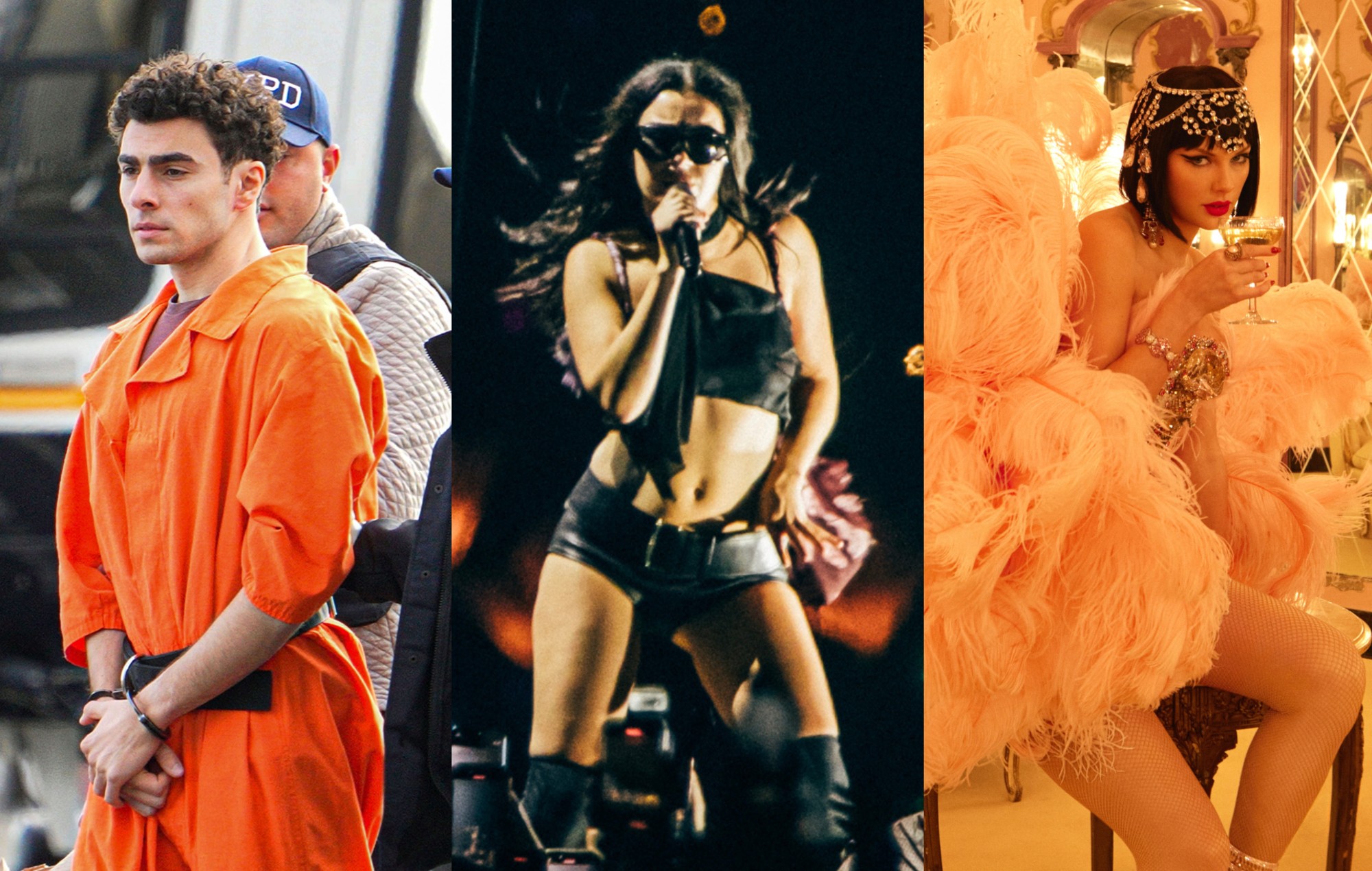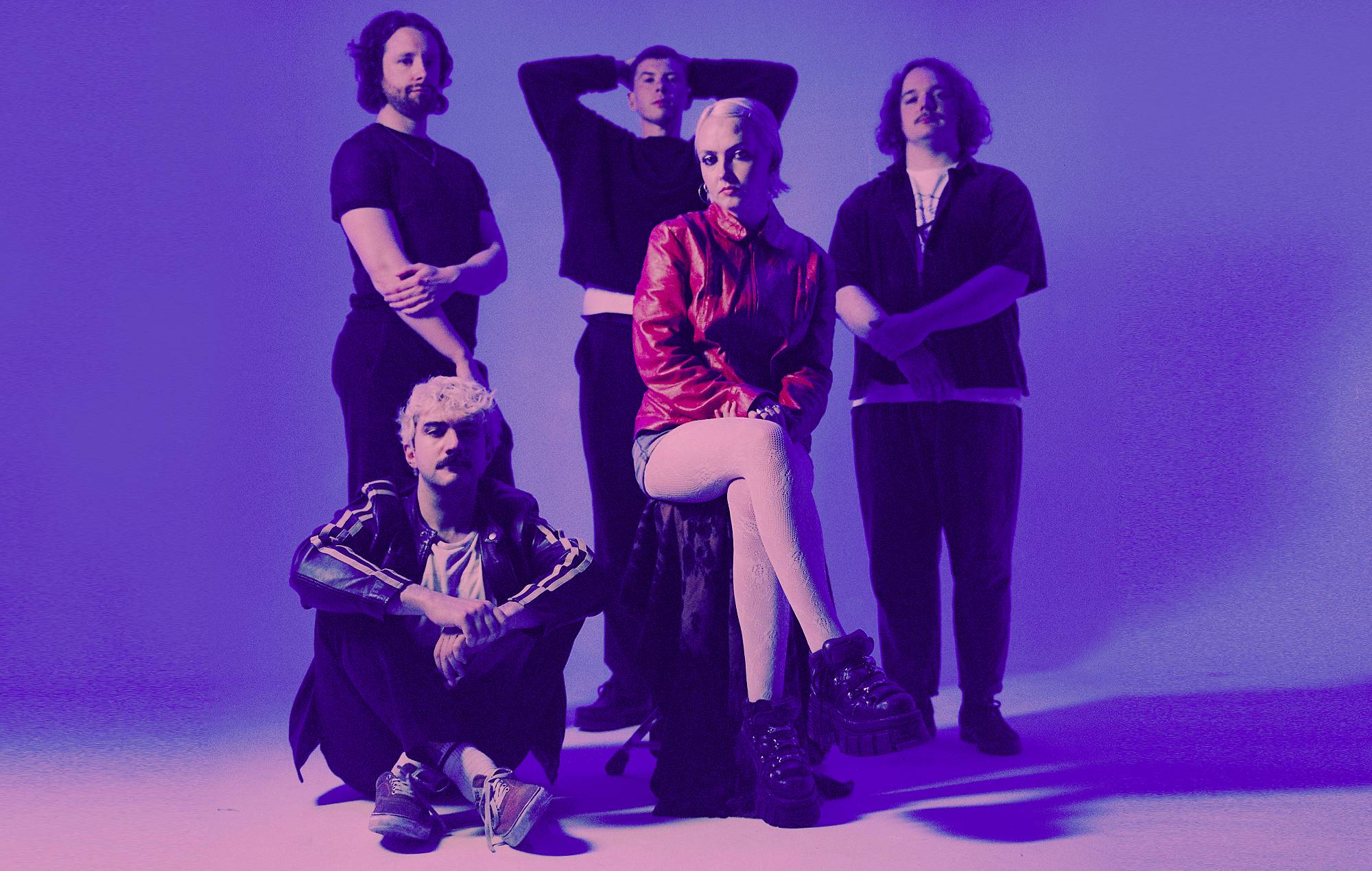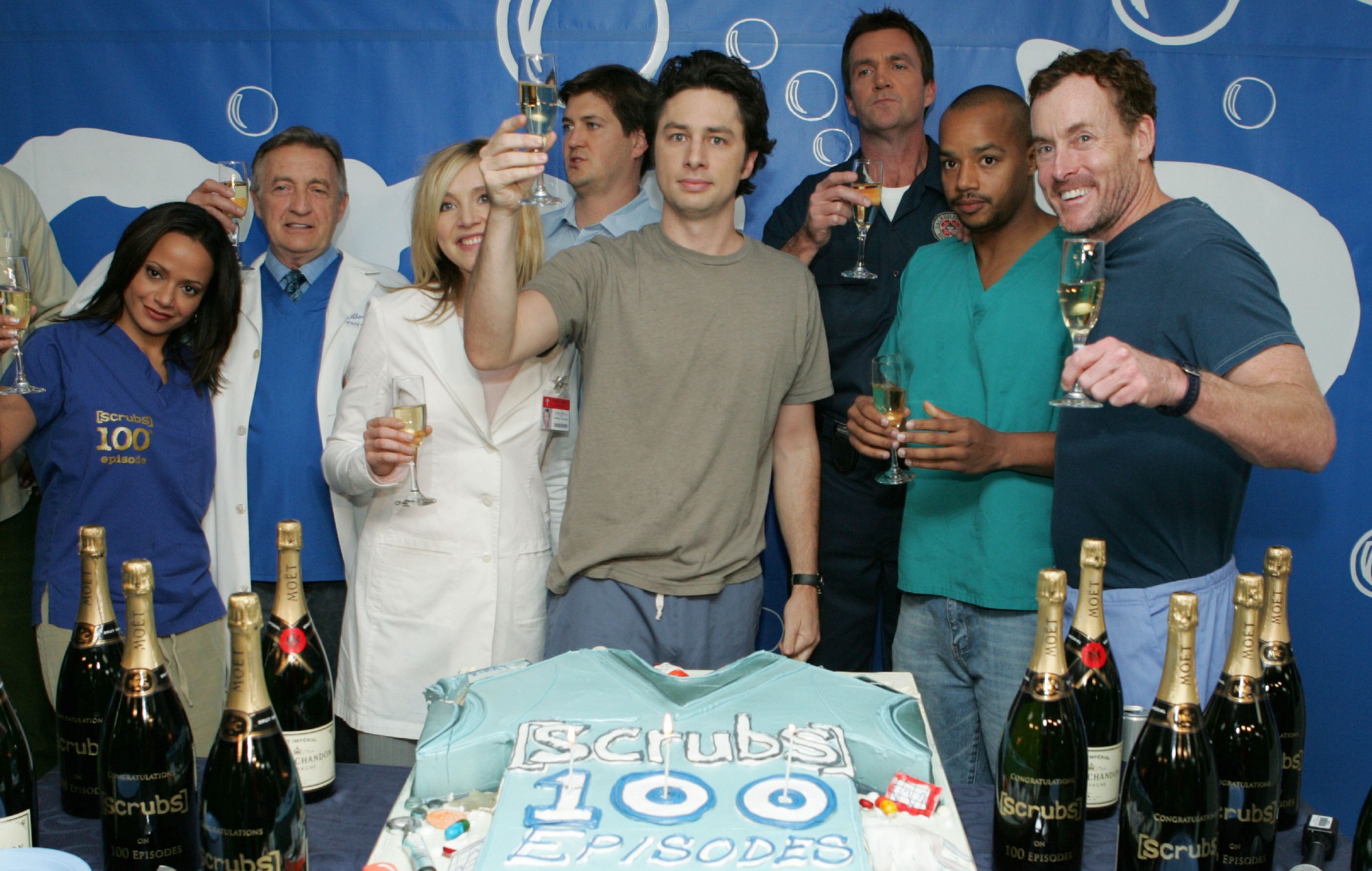Cam’ron’s Lawsuit Against J. Cole Reveals the Dark Side of Hip-Hop Collaborations: A Battle for Artistic Integrity and Financial Justice in a Cutthroat Industry
In the world of hip-hop, collaborations can be a double-edged sword. While they often lead to creative synergy and chart-topping hits, they can also spiral into legal disputes, as seen in the recent lawsuit filed by Cam’ron against J. Cole over the song “Ready ’24” from Cole’s 2024 mixtape, “Might Delete Later.” This situation highlights not only the complexities of artistic collaboration but also the underlying tensions regarding compensation, recognition, and contractual obligations in the music industry.
Cam’ron, a veteran rapper known for his influential work in the early 2000s and his role in the Diplomats, claims in court documents that he contributed lyrics and a verse to “Ready ’24” based on an agreement with J. Cole. According to Cam’ron, this agreement included the promise of future collaboration on another project or an appearance on his podcast, “It Is What It Is.” However, after recording the song in 2022, Cam’ron alleges that J. Cole failed to honor his commitments, leaving him feeling sidelined and unappreciated in an industry that often overlooks the contributions of artists who are not currently in the spotlight.
The crux of Cam’ron’s grievance revolves around his assertion that he has not received adequate compensation for his contributions to the track. He is now seeking recognition as a co-author of “Ready ’24” and is requesting a full accounting of the song’s earnings, which he estimates to exceed $500,000. This figure raises important questions about the financial dynamics of the music industry, particularly how profits are shared among artists, producers, and record labels. The disparity in earnings can often lead to feelings of exploitation, especially for artists like Cam’ron, who have paved the way for newer generations but may not receive the same financial rewards as their contemporaries.
In his lawsuit, Cam’ron also points out that while J. Cole offered to collaborate on songs that were already recorded, he was looking for a fresh partnership on original material. This distinction is crucial, as it underlines the importance of creative input and ownership in the music industry. The desire for originality is often at the heart of artistic expression, and when artists feel their contributions are undervalued or ignored, it can lead to significant rifts.
The legal dispute between these two prominent figures in hip-hop is not just a personal matter; it symbolizes a larger issue within the industry regarding respect, recognition, and financial equity. As the music landscape evolves, with streaming services and digital platforms altering how profits are generated and distributed, the need for clear agreements and fair compensation becomes increasingly critical. This situation serves as a reminder that behind the glamour and success of the music industry lies a complex web of negotiations, contracts, and, unfortunately, sometimes betrayal.
J. Cole has yet to publicly respond to Cam’ron’s claims, but the silence could be interpreted in various ways. It may suggest a desire to resolve the matter privately or a strategic choice to let the legal process unfold without further public commentary. However, the lack of a response also fuels speculation and debate among fans and industry insiders alike, who are keenly aware of the implications this case could have on future collaborations in hip-hop.
Moreover, this legal battle comes at a time when Cam’ron is also stepping back into the spotlight with his recent cameo in “Happy Gilmore 2,” starring Adam Sandler. This sequel, which arrives nearly three decades after the original film, showcases the enduring appeal of Sandler’s comedic style and highlights the nostalgic connection many have to his work. Featuring a blend of familiar faces and new talent, the film is poised to attract a diverse audience. Yet, even as Cam’ron embraces new opportunities in acting, his legal fight with J. Cole underscores the ongoing challenges he faces within the music industry.
The implications of this lawsuit extend beyond the two artists involved. It raises broader questions about the treatment of artists in the music industry, particularly those who have made significant contributions but may not receive the recognition or compensation they deserve. It also highlights the need for clarity and fairness in contractual agreements, particularly as the landscape of music consumption continues to shift.
In the end, the outcome of Cam’ron’s lawsuit against J. Cole could set a precedent for how similar cases are handled in the future. As artists continue to navigate the complexities of collaboration, recognition, and financial equity in a rapidly changing industry, this dispute serves as a poignant reminder of the ongoing struggle for justice and respect in the world of hip-hop.

Cam’ron is taking legal action against J. Cole over their song ‘Ready ’24’.
- READ MORE: J. Cole’s 10 best songs – ever!
According to court documents via Rolling Stone, Cam’ron claimed he contributed lyrics and a verse to the track, which appeared on Cole’s 2024 mixtape ‘Might Delete Later’, in exchange for Cole’s alleged promise to either collaborate with him on another project or appear on Cam’ron’s podcast, It Is What It Is.
He went on to claim that after the song was recorded in 2022, Cole failed to follow through on his commitment over the next two years, repeatedly saying he was unavailable for the podcast and never moving forward with another collaboration.
Cam’ron alleges that he is yet to receive any proper compensation for ‘Ready ’24’. He has called on the judge to declare him co-author of the song and grant him a full accounting of the song’s earnings, which he estimates to exceed $500,000 (£378,142).
The court documents noted that Cole allegedly offered to collaborate with Cam’ron on songs that he had already recorded, but Cam’ron wanted to partner on an original piece that never materialised.
Cole is yet to respond to the claims publicly.
Elsewhere, Cam’ron recently made a cameo in the Happy Gilmore 2 starring Adam Sandler.
Directed by Kyle Newachek, the sequel picks up almost three decades after the original, as Happy Gilmore (Sandler) comes out of golf retirement to help fund his daughter’s dream of going to a prestigious ballet school.
The film received a three star review with NME writing: The names just keep coming, including Margaret Qualley (as a casual golfer) and Haley Joel Osment (as a pro, who has undertaken some radical surgery to improve his swing). But really this is all about Sandler, back in the saddle in a classic role. With one montage set to The Cult’s 1985 banger ‘She Sells Sanctuary’, it all feels very nostalgic for eras gone by. Golf, beers, Sandler and Eminem? No doubt, your dad’s gonna love it.”
The post Cam’ron is suing J. Cole over ‘Might Delete Later’ song ‘Ready ’24’ appeared first on NME.



